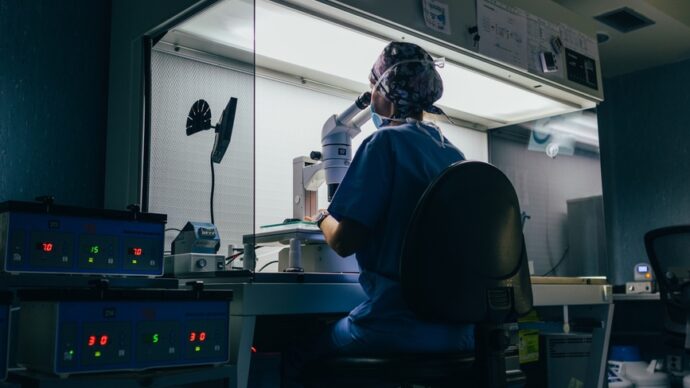
After 3 million people around the world have died from the coronavirus (and continue to do so every day), scientists are still trying to determine its origin. According to the Washington Post, “In recent months the idea that it emerged from the Wuhan Institute of Virology (WIV) — once dismissed as a ridiculous conspiracy theory — has gained new credence.
How and why did this happen? For one, efforts to discover a natural source of the virus have failed. Second, early efforts to spotlight a lab leak often got mixed up with speculation that the virus was deliberately created as a bioweapon. That made it easier for many scientists to dismiss the lab scenario as tin-hat nonsense. But a lack of transparency by China and renewed attention to the activities of the Wuhan lab have led some scientists to say they were too quick to discount a possible link at first.”
According to CNN, “Fauci, the top infectious disease expert in the US, also said this week he is not convinced the disease occurred naturally and pushed for more investigation…”
Scientific America reports, “To be clear, most scientists think animal spillover is the most likely explanation because that’s where most new diseases come from. True, the source animal has not yet been identified, but it took decades to determine that HIV was derived from primates. True, there is a lab in Wuhan that studies bat viruses, but it’s typical for scientists to study viruses endemic to their regions. And blaming humans for disease is as old as disease itself…
The late Yale University sociologist Charles Perrow developed the theory of ‘normal accidents’ to explain this phenomenon. People are human. We all make mistakes. Fortunately, our mistakes are often minor and can be easily corrected. But in complex technological systems, small mistakes may rapidly ramify and compound into large problems. When people don’t know how to fix their mistakes—and are perhaps embarrassed or ashamed—they may try to cover them up, impeding the ability of those around them to fix the problem, too.
It’s not hard to imagine that a COVID researcher made a small mistake and tried to hide it, and things then spiraled out of control. It doesn’t mean this is what happened, but it does mean we should keep an open mind until we know more. The lab-leak theory is plausible, and it is rational for scientific institutions to investigate closely, even if some of the people promoting the claim are irrational.
Life is short, research is expensive and not every theory is worth pursuing. But when the stakes are high, it generally behooves scientists to look closely at any idea that has not yet been properly evaluated. If there is credible evidence that the SARS-CoV-2 virus may have escaped from a lab—in China or anywhere else—that evidence should be evaluated, even if we first heard the message from an untrustworthy messenger.”
In a recent poll of 500+ global Sermo physicians, 82% agreed, saying we need to know the origin of the virus to fully understand it, treat it, and overcome it. In fact, 81% said they believe the virus started by a viral leak at the Wuhan Institute of Virology. And 94% believe it is possible that the researchers at the Wuhan lab who were working on coronaviruses—and who were hospitalized with symptoms consistent with covid-19 in early November 2019—could have been the very first Covid-19 patients.
Seventy-three percent of physicians are shocked that we still don’t know the origins of the deadly virus that triggered a global pandemic. And 96% are concerned that this could happen again.
Below, Sermo physicians from around the world share their personal insights, perspectives, and opinions on this important topic:
It is too much coincidence that this virus that appeared in 2012 in said mine, contaminated researchers in 2019, from said Wuhan laboratory. Therefore, it is not unreasonable to propose its origin in that laboratory, and in turn to investigate it.
General Practice (GP)
International politics will never help in medical field, so we should go on with researchers to treat & cure patients no matter what was the origin !!!
General Practice (GP)
No one knows and we might never know its origin. A lot of time has elapsed since Dec 2019 and if it did start in Wuhan lab, all traces of it would have been wiped clean by now. The fact that the virus seems very comfortable in the human system (and mutates fast) shows it was not a jump from another animal. If there was an animal source, how come no one has found one?
Endocrinology
The prevention of other pandemics should force us to investigate as closely as possible the origin of this current one and to demonstrate it objectively…
Obstetrics & Gynecology – Gynecology
From the article is it possible the Chinese lab was working on viruses to cure or prevent those who got it working in the mine in 2012?
Pediatrics (excluding surgery)








